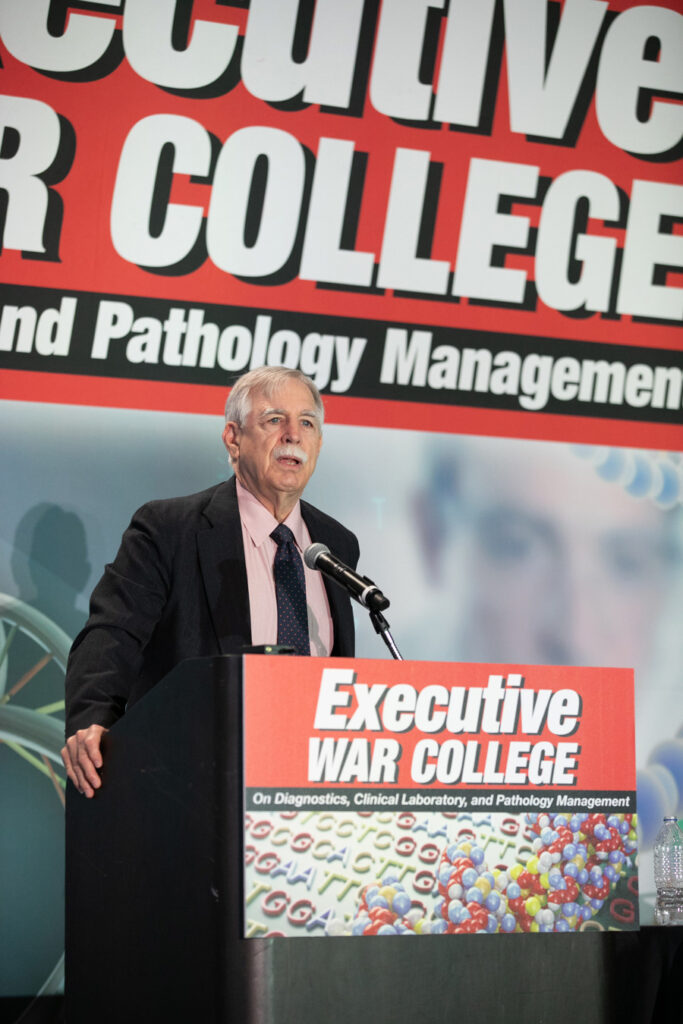29th Conference Features Information on What Clinical Lab Leaders Need to Know About a ‘Perfect Storm’ of New Compliance Challenges
There are signs that the US Food and Drug Administration (FDA) is poised to release the final rule on laboratory developed tests (LDTs)—perhaps even during the 29th annual Executive War College on Diagnostic, Clinical Laboratory, and Pathology Management, which kicks off in New Orleans this week.
The Office of Management and Budget (OMB) concluded its review of the final rule on April 22. Former FDA commissioner Scott Gottlieb, MD, and other regulatory experts expect the White House to send the final rule to Congress as early as late April and no later than May 22.
Either way, Tim Stenzel, MD, PhD, former director of the FDA’s Office of In Vitro Diagnostics, and other regulatory experts will be on hand at Executive War College (EWC) to walk attendees through what promises to be a “perfect storm of clinical lab and pathology practice regulatory changes.” Stenzel is scheduled to speak about the LDT rule during three sessions with fellow panelists on Day 1.
On Tuesday morning, Lâle White, executive chair and CEO of San Diego’s XiFin, Inc., will present a keynote on new regulations and diagnostics players that are “poised to reshape lab testing.” Her presentation is followed by a general session on Clinical Laboratory Improvement Amendments (CLIA) regulations featuring Salerno Reynolds, PhD., acting director at the U.S. Centers for Disease Control and Prevention (CDC) Center for Laboratory Systems and Response.

Robert Michel, Editor-in-Chief of The Dark Report will wrap day one with a general session on the regulatory trifecta coming soon to all labs, from LDT to CLIA to private payers’ policies for genetic claims.
Innovation in the spotlight
“It’s a rich mix of expert speakers, lab leaders who are doing innovative things in their own organizations, along with the consultants and the lab vendors who are pushing the front edge of laboratory management, operations, and clinical service delivery,” says Michel, who each year creates the agenda for EWC.
Several sessions, master classes, and speakers will look to the future with discussions about how healthcare data drives innovations in diagnostics and patient care, digital pathology adoption around the world, and hot topics such as artificial intelligence (AI), big data and precision medicine.
Panels offer a variety of viewpoints
“One valuable benefit of participating at the Executive War College is the various panel discussions,” Michel says. “Each panel brings together national experts in a specific area of the laboratory profession. As an example, our lab legal panel this year brings together four prominent and experienced attorneys who share opinions, insights, and commentary about relevant issues in compliance, regulations, and contractual issues with health plans and others.”
This allows attendees to experience a breadth of opinions from multiple respected experts in this area, he adds.
For example, a digital pathology panel will bring together representatives from labs, service providers, and the consultants that are helping labs implement digital pathology. The session will be especially helpful to labs that are deciding when to acquire digital pathology tools and how to deploy them effectively to improve diagnostic accuracy, Michel says.
And a managed care panel will feature executives from some of the nation’s biggest health plans—the ones that sit on the other side of the table from labs—to provide insights and guidance on how labs can work more effectively with them.
Networking opportunities abound
The event is about much more than politics and policy, however. There’s also a distinct social aspect.
“This is a friendly tribe,” Vicki DiFrancesco, a US HealthTek advisory board member who first attended EWC more than two decades ago, wrote in a recent post.
“Everyone is welcome, and everyone appreciates the camaraderie, so don’t be shy about going up and introducing yourself to someone. The quality of the crowd is top-notch, yet I’ve always experienced a willingness for those of us who have been to this rodeo to always be welcoming,” she notes.
Michel agrees. “One of the special benefits of participation at the EWC is the superb networking interactions and collaboration that takes place,” he says.
“From the first moments that attendees walk into our opening reception on Monday night until the close of the optional workshops on Thursday, one can see a rich exchange happening amongst circles of attendees. Introductions are being made. Connections are developing into business opportunities. The sum of an attendee’s experience at the Executive War College is to gain as much knowledge from the networking and collaboration as they do from the sessions.”
–Gienna Shaw


